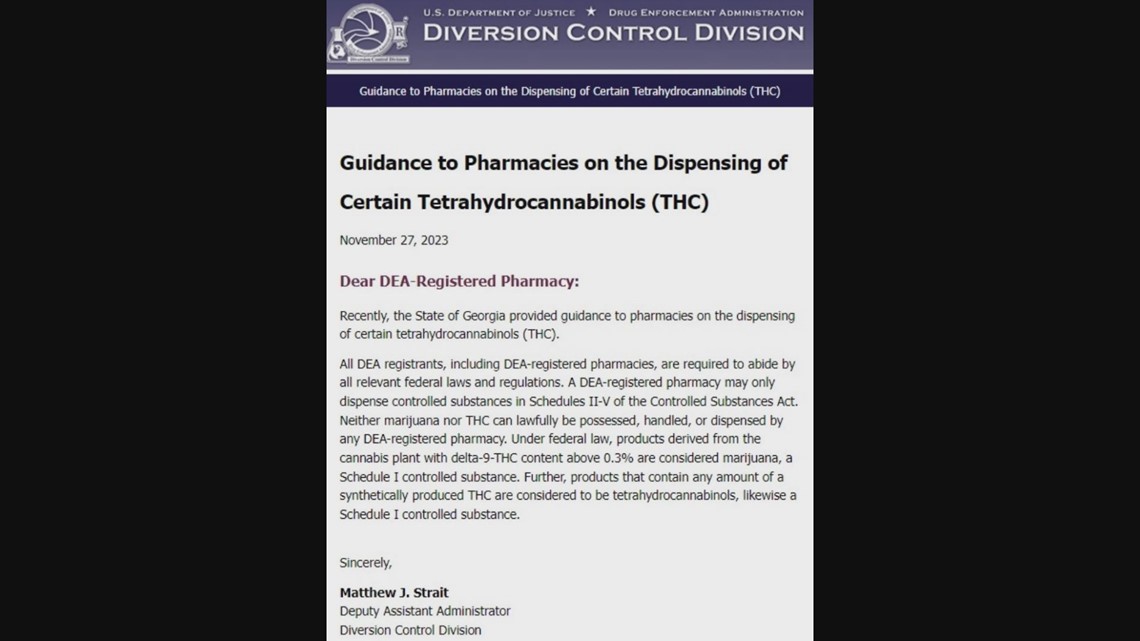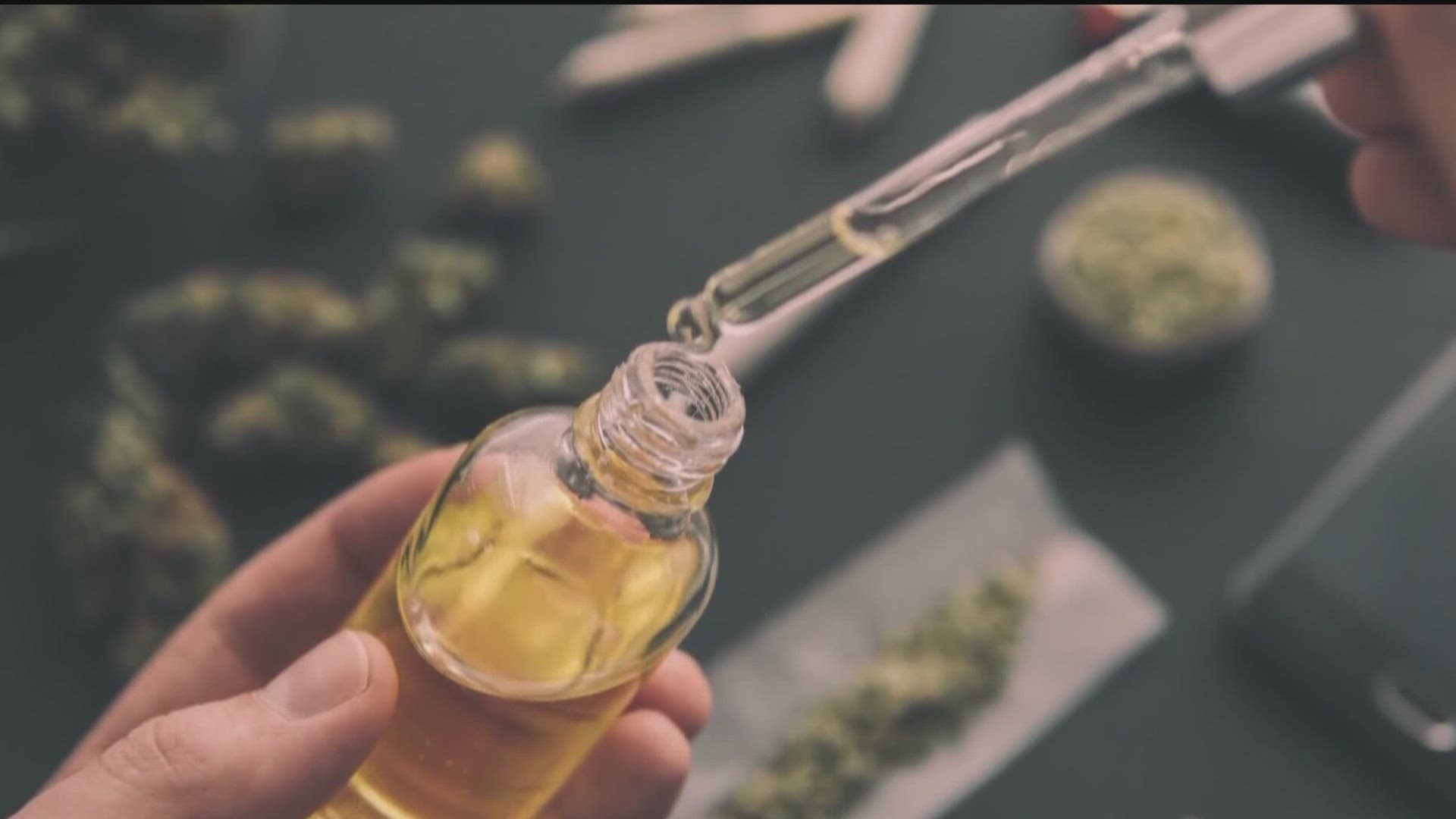ATLANTA — The state of Georgia’s medical marijuana program is in the federal crosshairs.
The Drug Enforcement Administration’s (DEA) Diversion Control Division is notifying pharmacies across the state that they could be in violation of federal law if they possess or sell medical marijuana.
Earlier this year, Georgia became the first state in the nation to authorize pharmacies to sell medical marijuana.
But now the DEA may be ready to shut down their medical marijuana sales -- never mind Georgia law.


Pharmacists like Ira Katz of Little Five Points Pharmacy in Atlanta began gearing up this past October to sell the low-THC oil product under the authority of the Georgia Board of Pharmacy.
He received an email from the DEA's Diversion Control Division last week, and a written letter Monday.
“It just doesn’t make any sense to me that people can go to a dispensary and not to a pharmacy," he said. "We would be buying it from the same growers."
Katz believes cannabis needs to be reclassified and allowed in independent pharmacies like his.
“We’re the most regulated industry in healthcare. That’s what shocked me. That’s what blows me away when it comes to why the DEA is not moving on this. They don’t see what we see here every single day," he said, referring to patients who need this.
Katz said he understands federal law overtakes state law but believes at the end of the day, this crackdown will hurt people who rely on medical cannabis.
"For chronic pain, we believe that if we can get patients off these high doses of opioids, the hydrocodone, the oxycodone, the combinations of these things, then through the use of medical cannabis, we believe we can help contribute to slowing down this opiate crisis," he added.
Michael Mumper with Georgians for Responsible Marijuana Policy, who opposes Georgia’s medical marijuana law, welcomes the DEA's possible crackdown against pharmacies.
"I imagine, in the short term, the pharmacies who started dispensing medical marijuana would have to stop or risk a confrontation with the DEA,” Mumpers said Wednesday night.
Why is the DEA targeting Georgia?
“You know, there's always been that tension between marijuana being illegal at the national level, while 38 states have approved it for medical reasons and 24 now for recreational reasons,” Mumpers said. “There was always that tension about where is the federal government going to draw the line. Where Georgia went the furthest is that they were the first state in the country to have pharmacies dispense medical marijuana. And so I think they just pushed the DEA to a certain point.”
"We believe that this is an important thing,” Katz told 11Alive in October. “Because who better than your independent pharmacist, who knows your history and knows your medical history, is able to best dispense medical marijuana?"
11Alive was unable to reach the Georgia Board of Pharmacy as well as the DEA on Wednesday and Thursday.
Dr. Kevin Sabet of Smart Approaches to Marijuana-- also opposed to Georgia's medical marijuana program--believes that pharmacies in Georgia could get in trouble with the DEA simply by inadvertently selling what they think is low THC oil, not knowing it might actually contain slightly higher THC content.
"You could have a product that claims to be low but is really above .3 percent when tested by authorities,” Sabet said. “And then that's going to put the pharmacy at great risk of losing their entire DEA registration, which, of course, no pharmacy would want to do."
The DEA's warning — to be safe, don't sell it at all.
“The idea that pharmacists who have licenses, especially with DEA, to handle sensitive material, sensitive drugs, would be also handling an illegal drug, it shouldn't strike people as strange (for the DEA to try to intervene)," Sabet said. “It is obviously illegal for pharmacies to dispense marijuana regardless of state law because federal law reigns supreme.”
It's now up to the state of Georgia to respond.
"Why not let the state control it? We have Georgia drugs and narcotics agents. But they’re bound by federal law, as we are," Katz added.

